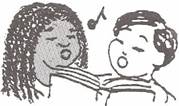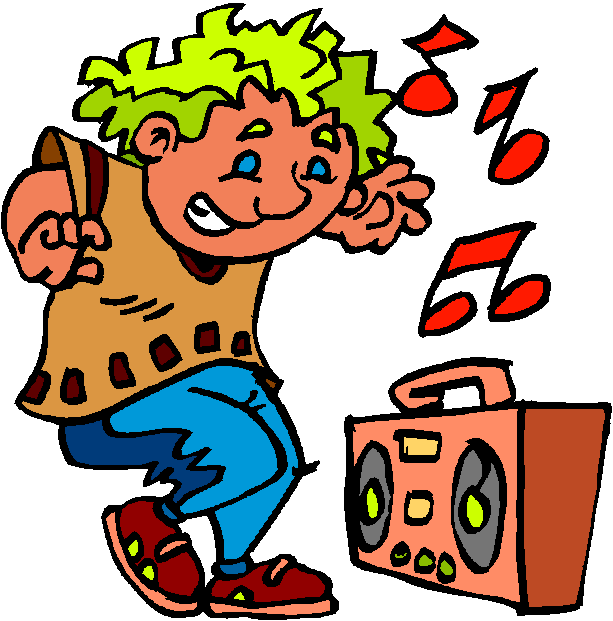THE ARTS ARE IMPORTANT
FOR YOUR CHILDREN
Participation and appreciation of the  arts are important for all children. The love of music, expression through dance, drama, or the visual arts are for everyone. They cross all socioeconomic and cultural boundaries. The encouragement of the arts goes beyond providing an environment where unusual talent thrives. They are truly important for children's healthy emotional and intellectual development Involvement in the arts builds confidence and sensitivity in children. The arts also teach related academic skills. Children's participation in the arts is likely to lead to adult appreciation and cultural support for the arts. Artistic production has been the hallmark of all civilization. arts are important for all children. The love of music, expression through dance, drama, or the visual arts are for everyone. They cross all socioeconomic and cultural boundaries. The encouragement of the arts goes beyond providing an environment where unusual talent thrives. They are truly important for children's healthy emotional and intellectual development Involvement in the arts builds confidence and sensitivity in children. The arts also teach related academic skills. Children's participation in the arts is likely to lead to adult appreciation and cultural support for the arts. Artistic production has been the hallmark of all civilization.
HOW EARLY DO CHILDREN LEARN ARTS?
 Toddlers' dancing and singing are probably not the best predictors of their future artistic careers, although special talents in the arts usually do show themselves early. Preschoolers can participate in the arts early and informally at home or in day care. Musical tapes to sing, dance, and clap to may provide familiarity, fun, and an early consciousness of music. Singing and playing instruments will also enhance early reading and math and seem to improve spatial skills as well, Pencils, crayons, paints, and Play-Doh®encourage the early exploration that will lead to creative participation in and the appreciation of the visual arts. Toddlers' dancing and singing are probably not the best predictors of their future artistic careers, although special talents in the arts usually do show themselves early. Preschoolers can participate in the arts early and informally at home or in day care. Musical tapes to sing, dance, and clap to may provide familiarity, fun, and an early consciousness of music. Singing and playing instruments will also enhance early reading and math and seem to improve spatial skills as well, Pencils, crayons, paints, and Play-Doh®encourage the early exploration that will lead to creative participation in and the appreciation of the visual arts.
Lessons in dance, drama, and art can begin early, provided they are informal and developmentally appropriate. More formal lessons can wait until children show specific interest. Involving children in lessons before they are ready for them may lead to pressures that can result in practice battles.
ARTS IN SCHOOLS
Schools often provide opportunities for children's  involvement in the arts. Local museums usually include art classes, and ballet companies may provide dance classes for children. Dance lessons need not be restricted to girls. Private music teachers abound in almost every community. Drama classes may be more difficult to find. Your children's school teachers are probably good resources for information on community arts opportunities. In smaller communities where trained teachers may not be available, volunteer parents who have art backgrounds may be able to provide small classes for beginners. involvement in the arts. Local museums usually include art classes, and ballet companies may provide dance classes for children. Dance lessons need not be restricted to girls. Private music teachers abound in almost every community. Drama classes may be more difficult to find. Your children's school teachers are probably good resources for information on community arts opportunities. In smaller communities where trained teachers may not be available, volunteer parents who have art backgrounds may be able to provide small classes for beginners.
Early teachers should emphasize your children's enjoyment of the arts. There is plenty of time for more disciplined approaches as your children develop their talent Children can be encouraged to participate in concerts and competitions as long as too much emphasis is not placed on winning. Too much enthusiasm about early competition victories can result in children's fears that they will not be able to meet such high expectations in the future.
SOCIAL ARTS
Family Concerts and Performances

To encourage your children's music practice or performance, you may want to set aside time for family concerts, dance recitals, or plays by your children.
Establishing a weekend evening as children's performance night, and inviting aunts, uncles, or grandparents adds to the fun. Weekly performances or a performance every two or three weeks may motivate children to prepare their favorite recital or shows. The brief performances can be formalized and made a bit more credible by handmade tickets, posters, costumes, sound effects, and after the show, applause and refreshments. |
Attendance at concerts, theaters, and museums helps children become familiar with the arts and appreciate the products of talented artists. It's important, however, not to overdo these visits or they may fight participation. In communities where live concerts or dance recitals are not available, television can provide wonderful exposure to the arts, provided parents encourage children to enjoy appropriate programming. Children are likely to watch if parents watch these performances with their children.
If one parent loves the arts and the other parent dislikes them, children in the family are likely to take sides. Some will love them while others will dislike them. Even if the whole family loves the arts, adolescents who are surrounded by peers who don't may be adversely affected by peer influence. However, if you continue to encourage without pressuring, your children will be back to their enjoyment again a few years later. Summer arts programs provide peer environments in which adolescents will feel safe in their arts appreciation.
 The arts enrich all of our lives. If participation and appreciation of the arts are part of your parenting style, your children will make a contribution to our society as artists or audiences or both, and their lives will be fuller because you provided them with aesthetic opportunities. The arts enrich all of our lives. If participation and appreciation of the arts are part of your parenting style, your children will make a contribution to our society as artists or audiences or both, and their lives will be fuller because you provided them with aesthetic opportunities.
©2010 by Sylvia B. Rimm. All rights reserved. This publication, or parts thereof, may not be reproduced in any form without written permission
of the author. |

 arts are important for all children. The love of music, expression through dance, drama, or the visual arts are for everyone. They cross all socioeconomic and cultural boundaries. The encouragement of the arts goes beyond providing an environment where unusual talent thrives. They are truly important for children's healthy emotional and intellectual development Involvement in the arts builds confidence and sensitivity in children. The arts also teach related academic skills. Children's participation in the arts is likely to lead to adult appreciation and cultural support for the arts. Artistic production has been the hallmark of all civilization.
arts are important for all children. The love of music, expression through dance, drama, or the visual arts are for everyone. They cross all socioeconomic and cultural boundaries. The encouragement of the arts goes beyond providing an environment where unusual talent thrives. They are truly important for children's healthy emotional and intellectual development Involvement in the arts builds confidence and sensitivity in children. The arts also teach related academic skills. Children's participation in the arts is likely to lead to adult appreciation and cultural support for the arts. Artistic production has been the hallmark of all civilization. Toddlers' dancing and singing are probably not the best predictors of their future artistic careers, although special talents in the arts usually do show themselves early. Preschoolers can participate in the arts early and informally at home or in day care. Musical tapes to sing, dance, and clap to may provide familiarity, fun, and an early consciousness of music. Singing and playing instruments will also enhance early reading and math and seem to improve spatial skills as well, Pencils, crayons, paints, and Play-Doh
Toddlers' dancing and singing are probably not the best predictors of their future artistic careers, although special talents in the arts usually do show themselves early. Preschoolers can participate in the arts early and informally at home or in day care. Musical tapes to sing, dance, and clap to may provide familiarity, fun, and an early consciousness of music. Singing and playing instruments will also enhance early reading and math and seem to improve spatial skills as well, Pencils, crayons, paints, and Play-Doh involvement in the arts. Local museums usually include art classes, and ballet companies may provide dance classes for children. Dance lessons need not be restricted to girls. Private music teachers abound in almost every community. Drama classes may be more difficult to find. Your children's school teachers are probably good resources for information on community arts opportunities. In smaller communities where trained teachers may not be available, volunteer parents who have art backgrounds may be able to provide small classes for beginners.
involvement in the arts. Local museums usually include art classes, and ballet companies may provide dance classes for children. Dance lessons need not be restricted to girls. Private music teachers abound in almost every community. Drama classes may be more difficult to find. Your children's school teachers are probably good resources for information on community arts opportunities. In smaller communities where trained teachers may not be available, volunteer parents who have art backgrounds may be able to provide small classes for beginners.
 The arts enrich all of our lives. If participation and appreciation of the arts are part of your parenting style, your children will make a contribution to our society as artists or audiences or both, and their lives will be fuller because you provided them with aesthetic opportunities.
The arts enrich all of our lives. If participation and appreciation of the arts are part of your parenting style, your children will make a contribution to our society as artists or audiences or both, and their lives will be fuller because you provided them with aesthetic opportunities.